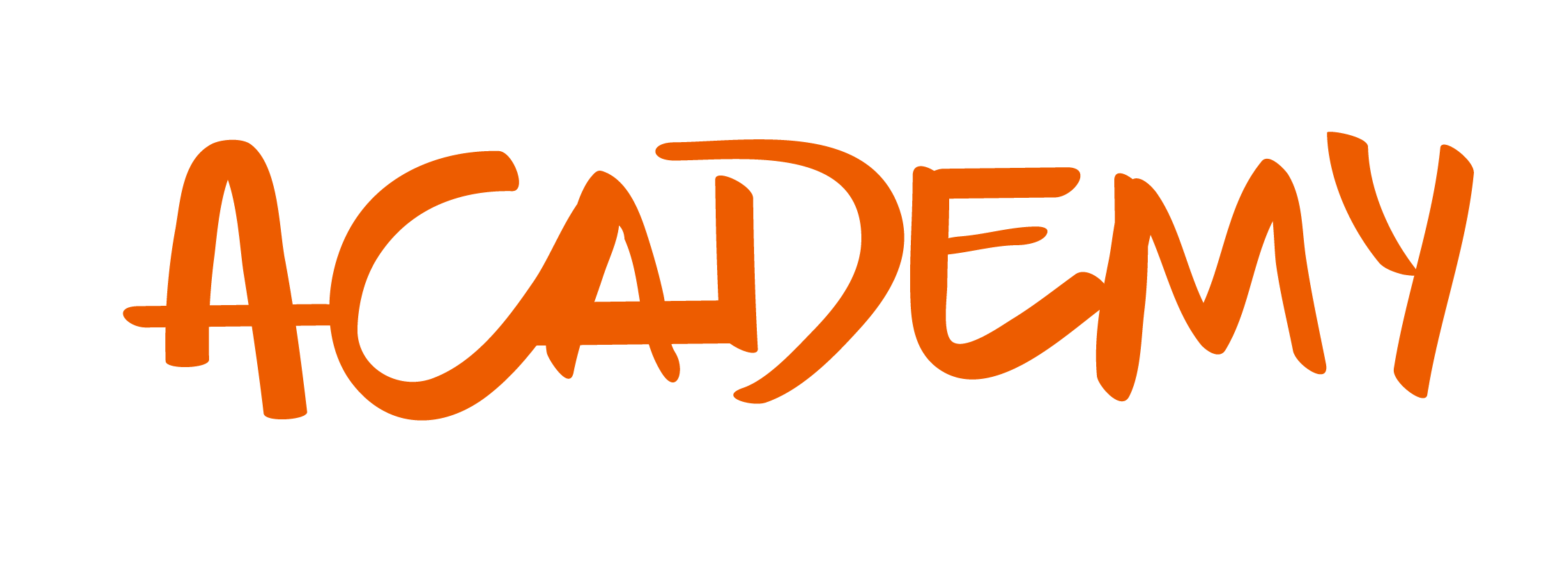In 2021, project management ranked as the most in-demand skill, a Business Talent Group report found.
It’s obvious that this competency is pivotal across practically every industry you can imagine. The benefits are real and tangible — and when project management is lacking, the consequences can be substantial. Here’s your complete guide to the fundamentals of the process.
What is project management?
Project management is a broad term describing how teams incorporate skill sets, tools, methodologies, and other elements to complete projects within timelines and according to the specifications and requirements that are laid out from the beginning. This is a fundamental set of practices for carrying out the project life cycle.
Individual project goals should complement and serve the organization’s larger objectives. The organization must establish methodologies, approaches, and practices to carry out its initiatives. While each project is unique, organizations realize their goals and achieve success by adhering to specific terms and an overarching plan.
When would you use project management?
Project management is applicable to and necessary for a huge range of fields, such as:
- Marketing and advertising
- Software development and
- Information technology
- Transportation and logistics
- Financial services
- Healthcare
- Publishing
- Law
- Construction and real estate
- Human resources
While project management isn’t necessary for every single work activity, it is important for any initiative that demands specific outcomes, deliverables, time sensitivity, and input from team members. It’s critical if you’re producing something complex or involved that demands management and oversight.
What is a project management process?
Every organization should establish a project management process. This will look different depending on your needs and the roles and responsibilities at your organization. The purpose is to make your project management more efficient.
This will incorporate time management strategies and resource management, along with other elements.
What are the five major project management processes?
Project initiation
The earliest phase of project management involves preparation. During this process, you will establish the project scope — the boundaries of the initiative. You will also determine which resources you need to complete it, including the tools, people, timelines, and materials the undertaking demands, and plan your budget.
Additionally, you will outline your goals and objectives for the project and define the deliverables.
Project planning
Planning is effectively an extension of initiation but more specific. Here, you will consider milestones that will serve your larger goals and inform your team members about their roles to ensure everyone is on the same page.
You will also craft a risk management plan to help you grapple with any obstacles you encounter along the way. It’s important to choose which methodology you will be using during the project, too.
Project execution
This is when you really get into the weeds. It’s essentially the “doing” phase when you carry out much of the work that you need to accomplish toward meeting your requirements and goals.
Stakeholders may be somewhat involved at this stage, at least in terms of staying apprised of your goings-on. You will also try to adhere to your project plan as closely as possible, although it’s not unlikely that you will need to deviate to some extent.
Project monitoring and controlling
This phase requires close attention from the project manager. They must look at the details to ensure the project stays on track and is progressing as it should be.
In order to monitor the project effectively, the project manager must check in with team members, both formally and informally. They will usually leverage software that incorporates tools like Gantt charts and/or Kanban boards to help them control the workflow and gain more oversight over the initiative.
Project closing
This is when the project is essentially completed. It involves ensuring that the stakeholders are satisfied with the results — they will most likely need to sign an agreement or contract to that effect — and getting all the deliverables aligned with the requirements.
You will also work with your team to determine what went well and what you can improve for next time. You should assess metrics and KPIs to back your insights with meaningful data.
Why is project management important?
According to the Project Management Institute’s (PMI) 2020 Pulse of the Profession report, 11.4% of investment is wasted because of poor project performance.
When you employ an effective project management strategy, you will safeguard your project against many of the routine problems organizations encounter without a clear methodology in place. That doesn’t mean there won’t be mistakes or issues along the way, but it does mean that you will be able to keep improving and ensure that you are working toward common goals, objectives, and desired outcomes.
Project management does more than make your process more efficient, although this is one benefit. It also helps team members informed as to their individual roles and responsibilities, improves productivity, and aligns goals and outcomes. It addresses risk management and gets everyone on the same page, as well as aids you in meeting challenges and unexpected obstacles.
Ultimately, because you are more effectively aligning your project goals with your larger company mission and objectives, you will make better decisions for the business. You will realize cost-saving benefits and create a process that can be honed and deployed again and again.
What does a project manager do?
A project manager’s role is multifaceted. They must have myriad skills and talents and a strong knowledge base. Just some of their many responsibilities include:
- Putting together a cohesive team that includes the necessary skillsets for the project at hand
- Developing a solid plan for project execution
- Managing resources
- Facilitating communication and collaboration
- Checking in with team members routinely
- Determining the project scope
- Creating a realistic timeline
- Knowing when and where to prioritize
- Establishing a budget
- Monitoring the progress of the project
- Working with stakeholders to determine requirements and goals, as well as manage expectations
- Establishing key performance indicators (KPIs)
- Working with the team to evaluate metrics and outcomes
- Instituting a quality assurance (QA) process
- Managing risks
- Wrapping the project up
These are just some of the tasks a project manager grapples with every day. The role includes many moving pieces, which means this professional must be extremely organized and adept at pivoting when need be.
How do you become a project manager?
Looking for a project management career? Here’s what to know.
Education
While it’s certainly true that you can gain the know-how and skills required for project management while working in any number of roles, most professionals in the field do go through formal education and training.
Most individuals who set out to be project managers have at least a bachelor’s degree, although there is no specific discipline they need to pursue. In many cases, this is necessary for landing an entry-level job in the field.
At some point in their careers, some project managers pursue certifications. One of the most widely recognized credentials is the Project Management Professional (PMP), granted by the PMI, certification, which serves as a testament to your skills and knowledge. Having one of these certifications — different types and levels are available — can improve your ability to land a role in the field, further your career, and increase your earning potential.
Skills and competencies
There are a host of hard skills and soft skills a project manager must have in order to succeed in their role. The good news is that many of these skills can be learned, acquired, and/or honed.
You can take plenty of courses via free or low-cost online platforms in order to gain more knowledge of the field and understand what will be required of you as a professional in project management, even aside from earning a formal project management certification. There are also courses to help you hone and attain specific skills via libraries like LinkedIn Learning or Udemy.
This list is not exhaustive, but it will give you an idea of the types of skills you will need on the job:
- Ability to work with technology and project management software
- Active listening
- Adaptability and flexibility
- Analytical skills
- Attention to detail
- Budgeting
- Business acumen
- Collaboration
- Communication (verbal and written)
- Critical thinking
- Innovation and creative thinking
- Interpersonal skills
- Knowledge of a specific field or niche, such as technology or construction
- Leadership
- Negotiation
- Organization
- Problem-solving
- Resource management
- Risk management
- Self-management
- Strategic thinking
- Teamwork
- Time management
- Willingness to learn
Career path and progression
Project management isn’t for everyone. That’s why before you even set out on this career path, you should do ample research to ensure that the field is the right one for you. In addition to looking for information about the career, talk to professionals in the field to learn about their roles and understand more about what you need to do to get your foot in the door.
Then, as we’ve discussed, you will need to gain the skills and experience necessary for setting out on a project management path.
Once you are working in the field, you can expect to start in a lower-level role like project coordinator. Then, you might advance into a role like an assistant project manager or project manager. Depending on your skills and experience, you may advance into a leadership role at some point in your career.
Many project managers choose to specialize in certain industries or fields, such as technology, media, or construction. This will help you in your career because having knowledge of certain areas can better equip you to land positions in those industries and assist you in managing projects.
Which project management methodologies should you use?
Most organizations adhere to a specific project management methodology to carry out their initiatives. This is a framework for bringing your project to fruition. It includes a set of guidelines, principles, and practices to follow to ensure success.
There are many different methodologies you can follow. The one you choose depends on factors like your industry — some are particularly popular in certain industries — and the nature of the project itself.
There are many project management methodologies. Here are some of the most popular.
Agile
Agile project management is one of the most popular frameworks in existence. As you’ll learn below, it has gained an enormous following and spun off numerous “sub”-approaches.
This is a philosophy based on a set of 12 principles, called the Agile Manifesto. It depends on continuous improvement and is driven by feedback and collaboration. Work is completed in small cycles called sprints.
While it can be applied to many fields, Agile is particularly popular in software development.
Kanban
Kanban is a visual approach to project management. You’ve likely heard of or encountered Kanban boards, which are literal or digital boards that layout tasks into categories to allow you to see the project progress. This helps you and your team stay on track and streamline workflows.
Kanban is an Agile approach that is used across many different industries given its simplicity and effectiveness.
Scrum
Scrum is another enormously popular Agile framework, also often applied to software development or information technology projects. Other industries like marketing and advertising are increasingly turning to the framework. In this methodology, projects are divided into very short sprints, in some cases lasting as little as a week.
Waterfall
The waterfall is a more traditional approach to project management. The methodology’s main aim is to keep the project closely controlled and eliminate risk as much as possible. This means that the steps, budget, timeline, scope, deliverables, and other elements are carefully defined from the beginning. Team members don’t move onto new steps, tasks, or phases until they are certain that the previous phase is perfected. Moreover, tasks must be completed consecutively.
Tips for successful project management
1. Invest in software and tools.
Undertaking any new project demands far more than knowledge and carefully honed skills, although these are, of course, important pieces of the puzzle. It’s also essential to have the right project management tools.
Beyond this software, gather together the other basic resources you will need for your project, such as Dropbox, Google Docs, time-tracking tools, templates, and so on. Plan out what you will need for the entire project from the early stages.
2. Understand the key roles and responsibilities.
Your project team members will contribute to project success, but it’s your job to determine which roles are critical to reaching that point. It’s important to not only choose the individuals with the right skills and competencies for the unique roles on the team, but it’s also important to have a clear understanding of the roles and responsibilities that are integral to the project no matter who you choose to carry them out.
Once you have these responsibilities outlined, be sure to inform every player about your — and the project’s — expectations.
3. Determine the best methodology for your project.
We’ve outlined just a few of the major project methodologies. When you’re planning out your initiative, carefully consider the pros and cons of each applicable approach. Based on the unique project, determine which one has the most to offer and will help you and your team further your goals.
4. Emphasize communication and collaboration.
Your team should encompass a diversity of thoughts and perspectives. Although this is beneficial, it can be difficult to manage these varying viewpoints. That’s why as project manager, you must ensure that the lines of communication are always open and create a culture of collaboration and transparency.
Everyone should stay apprised of the channels of communication that are available to them. Make yourself a resource so that everyone knows they can come to you. Consider implementing team-building exercises to help your team members work effectively with one another. Not everyone will be friends, of course, but it’s important that colleagues can work together effectively.
5. Be realistic about timelines and budgets.
It can be easy to be overzealous when establishing your timeline and budget. Be careful. While you should be ambitious, avoid being unrealistic. Setting impossible deadlines and assuming you have unlimited funds will adversely affect team morale, as well as frustrate stakeholders.
When determining your timelines and budgets, consider what you need to get the project done and the work that must go into the project. Work with both your team members and stakeholders to establish viable benchmarks and deadlines, and ask them as to what they need to complete the project. Use your own knowledge and expertise, too.
6. Ensure stakeholders are informed and on the same page as you.
It’s also critical to managing expectations. While you want to satisfy the needs of your stakeholders, it’s your job to ensure they understand what’s feasible. You should do this from the beginning to avoid scope creep, which involves changing and layering requirements mid-project and can lengthen timelines and force budgets to increase.
How to succeed in project management
Beginners and experts alike are constantly looking to improve their skills and practices in the world of project management. While there’s no magic formula for success, taking critical steps like choosing the right methodology, defining roles, putting together a cohesive team with a solid blend of talents and project management skills, and understanding your own role as the leader of the project itself are important starting points.
Using project management software, apps, and tools will also enable you to streamline and automate the process, making it more manageable for you and your team — as well as improve efficiency and solve headaches for everyone.
















